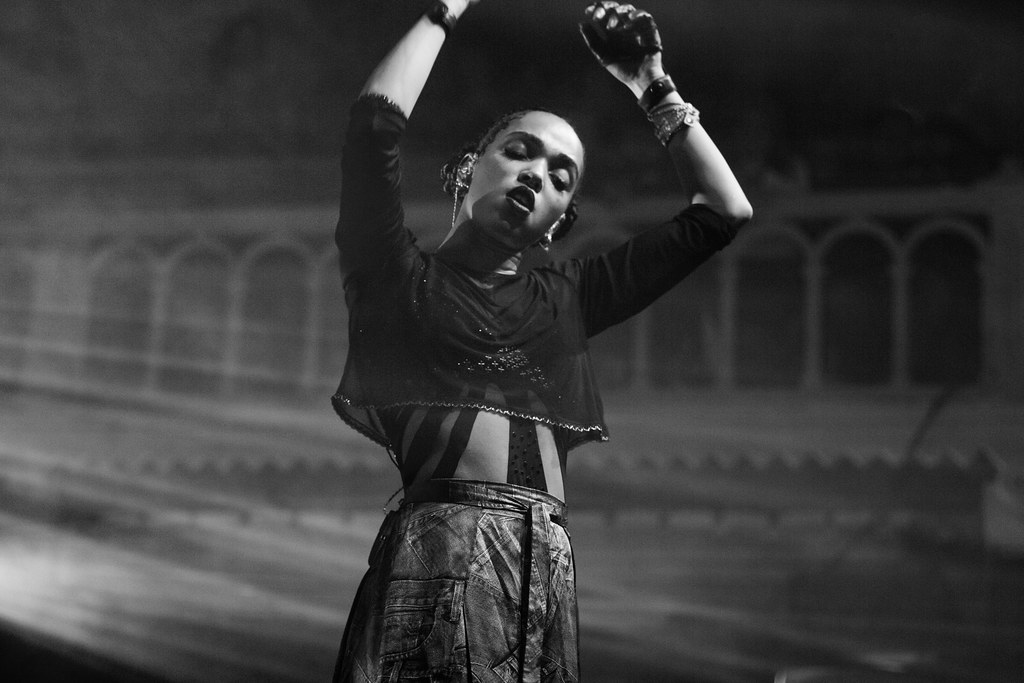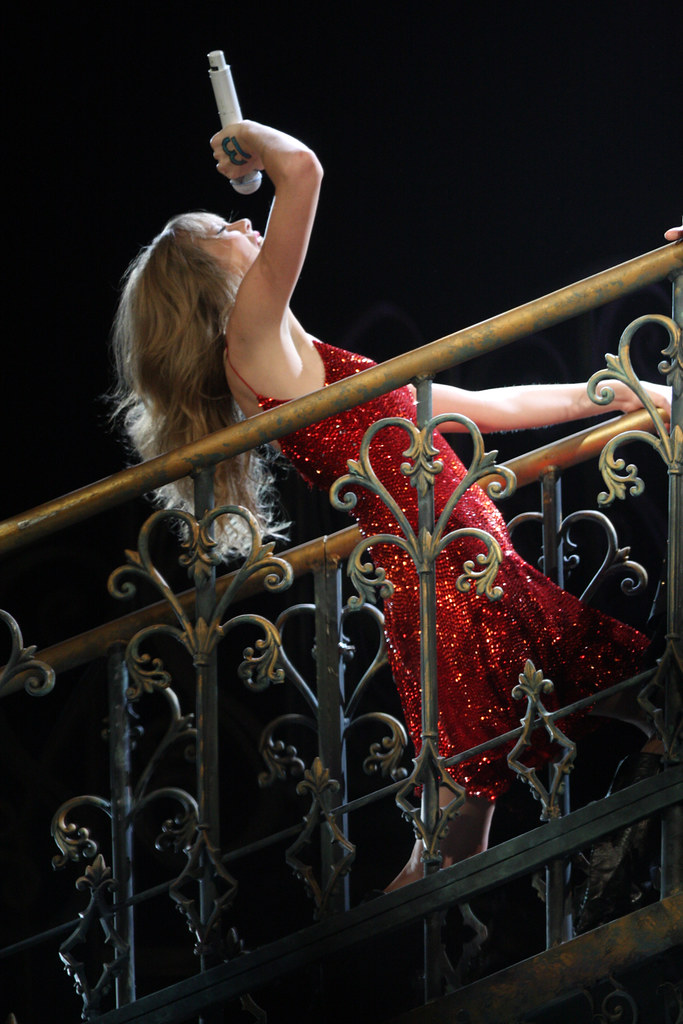
For many, the glittering lights of Hollywood, the roaring crowds, and the allure of celebrity represent the ultimate dream – a life filled with endless opportunities, adoration, and influence. It’s a fantasy often painted in vibrant hues across our screens and magazines, suggesting an existence free from mundane worries and brimming with unparalleled joy. However, beneath the polished surface and dazzling smiles, an entirely different narrative frequently unfolds, one that speaks to the profound sacrifices and unexpected burdens that come with being in the constant public eye. This often-unseen reality reveals a darker, more complex truth about stardom.
Indeed, the dream of fame, for some, can quickly morph into a suffocating nightmare. The very elements that draw people to celebrity – recognition, attention, and a platform – can become chains, binding individuals to an existence where privacy is a forgotten luxury, and every personal moment is subjected to intense scrutiny. This relentless exposure, coupled with the pressure to maintain an idealized public persona, can exact a heavy toll on mental health, relationships, and even one’s fundamental sense of self. It’s a stark reminder that while the world celebrates their successes, many celebrities grapple with a deep-seated regret over the path they chose.
Today, we’re taking an empathetic journey into the lives of several well-known figures who have candidly expressed their struggles with the spotlight. Their stories aren’t just cautionary tales; they are deeply human accounts of individuals who, despite achieving what many aspire to, have found their rise to stardom to be a source of profound regret. As we delve into their experiences, we aim to understand the genuine human cost behind the glamorous facade, offering a glimpse into the moments when fame turned irrevocably toxic for them.

1. **Billie Eilish: Declaring Fame as “Trash”**Billie Eilish, a global phenomenon who achieved immense success at a very young age, has been remarkably open about the darker facets of her celebrity. Her raw honesty resonates with many who might otherwise assume fame is purely blissful. In a candid moment, Eilish articulated her true feelings about her status, bluntly stating that fame is “trash.” This powerful and straightforward declaration cuts through the usual PR-speak, offering a genuine glimpse into her lived experience.
Her statement speaks volumes about the overwhelming pressures and negative aspects she has faced since her meteoric rise. For someone who began her career as a teenager, the sudden and pervasive loss of anonymity must have been incredibly disorienting. Every aspect of her life, from her personal style to her relationships and mental health struggles, has been meticulously picked apart and discussed by millions, often without her consent or understanding.
This constant dissection and lack of personal space can be profoundly damaging, especially during formative years. Billie Eilish’s comment underscores that the perceived glamour of celebrity often overshadows the intensely personal and often painful experiences endured by those living under the microscope. Her willingness to share this perspective sheds light on the unseen emotional burden that accompanies such widespread recognition, highlighting a stark contrast between public perception and personal reality.

2. **FKA Twigs: The Scrutiny That Made Her Want to “Smash [Her] Face into the Mirror”**FKA Twigs, an artist celebrated for her innovative music and distinctive style, has bravely shared the harrowing extent of the media scrutiny she has endured. Her experience goes far beyond simple criticism, delving into an invasive and psychologically damaging level of public judgment. The intense spotlight led her to a point where she felt an overwhelming desire to “smash [her] face into the mirror,” a vivid and deeply unsettling image that conveys the severe emotional distress she faced.
This visceral reaction highlights the profound psychological toll that constant public surveillance can take on an individual. When every move, every relationship, and every personal choice is analyzed and often condemned by an anonymous multitude, it creates an unbearable weight. The feeling of being perpetually exposed and judged, without the ability to escape or truly defend oneself, can erode a person’s self-worth and mental stability.
FKA Twigs’s stark admission serves as a powerful testament to the destructive power of toxic fame. It underscores how the media’s relentless gaze, often fueled by sensationalism, can push even the most resilient individuals to their breaking point. Her words lay bare the brutal reality of how public opinion, magnified by celebrity, can distort self-perception and inflict deep emotional wounds, making the allure of stardom seem a cruel illusion.

3. **Harrison Ford: Fame and Lost Privacy as a “Burden”**Harrison Ford, a legendary figure in Hollywood with a career spanning decades, has consistently expressed his disdain for the aspects of fame that erode personal freedom. For an actor who values his privacy, the loss of it has been a lifelong struggle, which he openly labels as a “burden.” Despite achieving unparalleled success and adoration, the trade-off of a normal, private life has clearly weighed heavily on him throughout his career.
This sentiment from an established star like Ford offers a crucial perspective: the negative aspects of fame aren’t just limited to young, burgeoning artists; they are an enduring challenge for even the most seasoned veterans. For decades, Ford has navigated a world where his face is instantly recognizable, making simple everyday activities like going to the grocery store or taking a quiet walk virtually impossible without drawing attention and intrusion. This constant vigilance, the awareness of being watched, transforms ordinary life into a strategic maneuver.
His description of fame as a “burden” speaks to the profound longing for normalcy and anonymity that often accompanies extreme celebrity. It suggests that no amount of professional achievement or financial reward can truly compensate for the loss of personal space and the freedom to simply exist without public intrusion. Ford’s ongoing struggle underscores that for many, fame’s most valuable currency – attention – is also its heaviest price.

4. **Robert Pattinson: The Isolation of Losing a “Normal” Life**Robert Pattinson, propelled into global stardom by blockbuster franchises, has been particularly vocal about the isolating nature of his fame. He poignantly observes that people often fail to grasp just “how lonely you become once you stop having a ‘normal’ life.” This statement reveals a profound sense of solitude that can settle upon those who seemingly have everything, but at the cost of genuine, everyday connections.
The transition from a pre-fame existence to one under a relentless spotlight means shedding the familiar comforts of anonymity and the simple ability to blend in. For Pattinson, this meant an irreversible shift away from a ‘normal’ life, replaced by a guarded, often solitary existence where trust becomes scarce and genuine relationships are hard to cultivate. The very public nature of his work inadvertently created walls around his private world, leaving him feeling cut off despite being surrounded by millions of fans.
His experience highlights a cruel paradox of fame: while it brings widespread recognition, it can simultaneously sever an individual from the ordinary human experiences that foster deep connections. The loss of spontaneity, the constant need for security, and the inability to form relationships outside of a celebrity bubble contribute to a deep sense of isolation. Robert Pattinson’s candidness reminds us that the glare of stardom can be a lonely place, even for those at its very center.

5. **Megan Fox: Bullying “On a Global Scale”**Megan Fox has offered a strikingly relatable, yet deeply unsettling, comparison to describe the experience of being a celebrity: she asserts that it’s akin to being bullied in high school, but “on a global scale.” This powerful analogy brings the often-abstract concept of celebrity hardship down to a visceral, universally understood level. It encapsulates the constant, relentless negativity and judgment that can emanate from millions of people worldwide.
For Fox, the difference between schoolyard torment and global fame is merely the magnitude and the lack of escape. In her words, “What people don’t realize is that fame, whatever your worst experience in high school, when you were being bullied by those 10 kids in high school, fame is that, but on a global scale, where you’re being bullied by millions of people constantly.” This isn’t just about criticism; it’s about a pervasive, aggressive, and often dehumanizing onslaught of comments and opinions that can come from every direction.
The digital age has amplified this effect, turning every social media platform and news comment section into a potential arena for public shaming. Megan Fox’s description illuminates how pervasive and inescapable this form of bullying can be, impacting every facet of a celebrity’s life, from their career choices to their personal appearance and family. It paints a vivid picture of a life where the public, empowered by anonymity, can inflict emotional pain on a truly unprecedented scale, making stardom feel like an eternal high school nightmare.

6. **Anne Hathaway: Fame That “F***ed [Her] Up for a Really Long Time”**Anne Hathaway, an Academy Award-winning actress, has been candid about the profoundly negative impact fame had on her early in her career. She revealed that fame “ed [her] up for a really long time,” a stark and honest admission that speaks to the intense psychological distress she endured. This powerful phrasing cuts through the glamour to reveal the deep emotional scars left by the harsh glare of the public eye.
Her experience is a testament to how sudden and intense public scrutiny, particularly when it shifts from adoration to criticism, can be deeply disorienting. Hathaway faced a period where she became the target of intense public backlash, an experience that, for many celebrities, is an unavoidable rite of passage. This kind of widespread disapproval, often fueled by seemingly trivial reasons, can be incredibly difficult to process and move past, especially when one’s entire public identity is at stake.
This regret highlights not just a moment of discomfort, but a sustained period of struggle to reconcile her public image with her private self. It underscores that the constant pressure to be perfect, coupled with the inevitable periods of public disdain, can fundamentally alter an individual’s mental and emotional landscape. Anne Hathaway’s transparency helps us understand that for some, fame isn’t merely a challenge, but a deeply traumatic experience that requires significant time and effort to heal from.
Read more about: Before the Bright Lights: 12 Legendary Actors Who Starred in Commercials Before They Hit the Big Time

7. **Gigi Hadid: The Cost of Stardom on Friendships**Gigi Hadid, a name synonymous with high fashion and global runways, has captivated millions with her striking beauty and undeniable presence. Yet, beneath the dazzling lights and designer garments, her journey to supermodel status has come with a deeply personal cost. Despite reaching the pinnacle of success in the modeling world, Hadid has openly discussed the emotional toll it took on her closest relationships, a regret that many might not expect from someone seemingly living a dream.
Becoming a globally famous supermodel meant an unprecedented level of exposure and demand, a lifestyle that can be incredibly difficult for those not in the industry to comprehend. This intense professional trajectory, requiring constant travel and a relentless schedule, inherently creates distance from one’s pre-fame life. For Gigi, this shift was particularly poignant, leading to a profound realization about the true price of her rapidly ascending career.
In a candid admission that resonates with the human experience of sacrifice, Hadid articulated her biggest regret with heartbreaking simplicity: “You lose all your friends.” This short, devastating sentence reveals a stark truth about how the isolating nature of celebrity can erode personal connections. The sheer scale of her fame made maintaining genuine, everyday friendships an almost impossible task, leaving her to navigate the complexities of her new reality often alone.
Her experience serves as a powerful reminder that the glittering allure of fame often comes with hidden sacrifices. While the world celebrates the glamorous images of models like Gigi Hadid, her words illuminate the deeper, personal challenges that exist behind the camera. It’s a poignant testament to the fact that not all wishes for stardom bring unmitigated joy, and sometimes, the most precious things are lost along the way.

8. **Lady Gaga: Losing Freedom and Becoming “Everyone Else’s”**Lady Gaga, a true icon renowned for her groundbreaking music, audacious fashion, and unwavering authenticity, has built an empire on pushing boundaries and empowering her legion of fans. From sold-out arenas to critically acclaimed film roles, her journey to superstardom has been nothing short of extraordinary. However, even for an artist as celebrated and seemingly invincible as Gaga, the weight of her fame carries a significant personal burden.
She has spoken openly about the profound sense of loss that accompanies her public life, articulating a sentiment that strips away the glamour and reveals a stark truth about celebrity. For Gaga, the moment she steps outside her private sanctuary, she experiences a fundamental shift in her existence. It’s a transition where her personal autonomy diminishes, and her identity transforms in the eyes of the world.
In her own powerful words, Lady Gaga revealed that “as soon as she leaves her house, she loses her freedom and belongs ‘to everyone else.'” This statement eloquently captures the pervasive nature of celebrity. It highlights the feeling of being constantly observed, owned, and defined by public perception rather than by one’s own inner self. The spontaneous joy of ordinary life is replaced by a guarded existence, where every movement is scrutinized and every interaction is potentially public.
This loss of personal freedom, the inability to simply *be* without the weight of expectation and ownership, can be incredibly taxing. For an artist who thrives on authenticity and self-expression, this public appropriation of her identity can be a source of deep regret and constant navigation. Lady Gaga’s insight reminds us that the adoration of millions, while a powerful force, can also create an invisible cage, transforming an individual into a collective property rather than a free spirit.

9. **Zach Galifianakis: Declaring “Being a Celebrity is Sh**”Zach Galifianakis, celebrated for his distinctive comedic style and memorable roles in hit films, has carved out a unique space in Hollywood with his irreverent humor and unassuming persona. Yet, despite achieving widespread recognition and commercial success, Galifianakis has made it abundantly clear that the trappings of celebrity hold little appeal for him. His perspective offers a refreshing, unfiltered take on the often-glamorized world of fame, stripping it down to its unvarnished reality.
He has not minced words when expressing his true feelings about life in the spotlight, dismissing it with a bluntness that underscores his genuine disdain. Galifianakis’s memorable declaration, “being a celebrity is ,” stands as a stark testament to his perspective. It’s a statement that encapsulates a deep-seated rejection of the superficiality and manufactured attention that often accompanies widespread recognition, suggesting a profound disconnect with the entire concept.
Further elaborating on his feelings, he clarified, “it’s dumb and I’m not interested in it. I like to be an actor, and that’s it.” This distinction is crucial, revealing his passion for his craft without the desire for the accompanying public spectacle. He yearns for a life where his work speaks for itself, free from the constant intrusion and the often-misguided focus on personal lives. For Galifianakis, the core of his professional identity lies solely in performance, not in the performance of celebrity itself.
His sentiments extend to a broader criticism of how society engages with famous figures. “We have people telling us, ‘We should pay attention to these people,’ for all the wrong reasons, their personal lives and whatnot … I’d rather just do my work and go home and watch Lifetime.” This points to a weariness with the intrusive nature of the public eye and the manufactured drama that often defines celebrity narratives. Zach Galifianakis simply desires the quiet normalcy of an everyday existence, highlighting a profound regret for the loss of that simplicity.

10. **Shailene Woodley: Hating the “F-Word” (Famous) and the “C-Word” (Celebrity)**Shailene Woodley has graced our screens in a variety of compelling roles, from dystopian heroes to complex dramatic characters, earning her a place as a respected actress. While many aspire to the recognition and opportunities that come with her level of stardom, Woodley holds a remarkably unconventional and candid view on her fame. She doesn’t just dislike it; she actively despises the very terms associated with her public status.
Her profound aversion to the terminology of celebrity underscores a deep discomfort with the public persona that has been thrust upon her. Woodley has been exceptionally clear about her feelings, revealing a perspective that challenges the pervasive allure of the spotlight. She has articulated this distaste in a particularly memorable and impactful way, making her stance unequivocally known to anyone paying attention.
In a striking revelation, Shailene Woodley declared, “To me, the F-word is ‘famous.’ And the C-word is ‘celebrity.’ I hate those words with a passion.” This powerful comparison elevates her disdain for these labels to an almost visceral level, equating them with profanity. It emphasizes how much she rejects the categories that the world uses to define her public identity, suggesting they feel inherently demeaning or false to her personal sense of self.
Her strong feelings demonstrate a fierce commitment to maintaining her authentic self, separate from the manufactured image of a “star.” For Woodley, the terms ‘famous’ and ‘celebrity’ strip away her individuality and autonomy, replacing it with a constructed identity for public consumption. This deep-seated regret for the loss of her anonymity and the imposition of these labels truly showcases the struggle of an artist who values privacy and substance over superficial recognition.

11. **Kristen Stewart: Fame as “The Worst Thing in the World”**Kristen Stewart, known globally for her pivotal roles in major film franchises and critically acclaimed independent features, has experienced the full spectrum of fame, from fervent adoration to intense public scrutiny. Having grown up largely in the public eye, her journey has been punctuated by an enduring struggle with the relentless glare of celebrity. Her perspective is not one of mere inconvenience, but rather a profound philosophical rejection of the entire concept.
Stewart has consistently articulated a deep-seated regret and discomfort with the burdens of stardom, expressing her feelings with an unfiltered honesty that is both refreshing and revealing. For someone who values privacy and authentic human connection, the constant performance demanded by public life has proven to be an overwhelming challenge. Her candid statements offer a window into the psychological toll that pervasive fame can exact.
Perhaps her most direct and impactful statement on the matter is her declaration that “Fame is the worst thing in the world.” This sweeping generalization, coming from an actress who has achieved significant success, powerfully conveys the depth of her disillusionment. It suggests that for all its perceived benefits, the downsides of celebrity far outweigh any advantages, especially when it feels devoid of genuine purpose.
She further questioned the motivation behind seeking fame, asking, “Especially if it’s pointless. When people say, ‘I want to be famous’ – why? You don’t do anything?” This highlights her belief that fame without substance or contribution is a hollow pursuit, and a regret for the attention garnered simply by being recognized rather than for meaningful work. Her candidness also extends to the physical and emotional discomfort of public events, where “having that much human energy thrust at you and then being critically analyzed is obviously disarming.” For Kristen Stewart, the public eye is not a stage for enjoyment, but a source of profound unease and a constant reminder of what she has lost.

12. **Justin Bieber: The Isolation and Depression of Constant Scrutiny**Justin Bieber burst onto the global music scene as a teenage sensation, instantly becoming one of the most recognized and adored pop stars of his generation. His meteoric rise brought unprecedented levels of fame at a remarkably young age, transforming his entire life into a public spectacle. While his success is undeniable, Bieber has been remarkably transparent about the immense personal cost and profound regrets that have accompanied his journey to superstardom.
Having spent the majority of his formative years under an intense spotlight, Bieber’s experience offers a compelling insight into the unique pressures faced by child stars. The transition from a normal childhood to an existence where every move is documented, dissected, and judged by millions can be incredibly disorienting and emotionally damaging. This relentless scrutiny left him grappling with severe mental health challenges.
When directly asked if he regretted becoming famous, Bieber’s response was raw and honest: “All the time.” This simple yet powerful admission speaks volumes about the deep-seated struggles he has endured. He further elaborated on the pervasive feeling of isolation, explaining, “And I feel isolated. You’re in your hotel room and there are fans all around, paparazzi following you everywhere, and it gets intense. When you can’t go anywhere or do anything alone you get depressed.”
This vivid description paints a picture of a gilded cage, where the very adoration of fans paradoxically leads to profound loneliness and psychological distress. The inability to experience basic human freedoms, like walking outside unnoticed or cultivating private relationships, created an environment ripe for depression. Justin Bieber’s journey is a powerful, cautionary tale that illustrates how the relentless glare of fame, especially when experienced from such a young age, can lead to a pervasive sense of regret and a deep longing for a life unburdened by the public eye.
**The Unseen Cost: A Final Reflection**
Read more about: Beyond the Spotlight: 15 Celebrities Who Bravely Share Their Private Struggles with Mental Pressure
As we conclude our empathetic journey into the lives of these twelve public figures, a powerful and consistent narrative emerges: the dream of fame, while captivating, often carries an unseen and devastating personal cost. From the erosion of privacy and genuine friendships to profound psychological distress and a fundamental loss of self, the experiences of Billie Eilish, FKA Twigs, Harrison Ford, Robert Pattinson, Megan Fox, Anne Hathaway, Gigi Hadid, Lady Gaga, Zach Galifianakis, Shailene Woodley, Kristen Stewart, and Justin Bieber paint a vivid picture. Their candid admissions serve as a poignant reminder that behind every glittering façade, there are individuals grappling with complex regrets, yearning for the simpler lives they left behind. Their stories challenge us to look beyond the headlines and appreciate the true human experiences that shape the lives of those we admire, urging us to remember that true fulfillment rarely lies solely in the spotlight.



